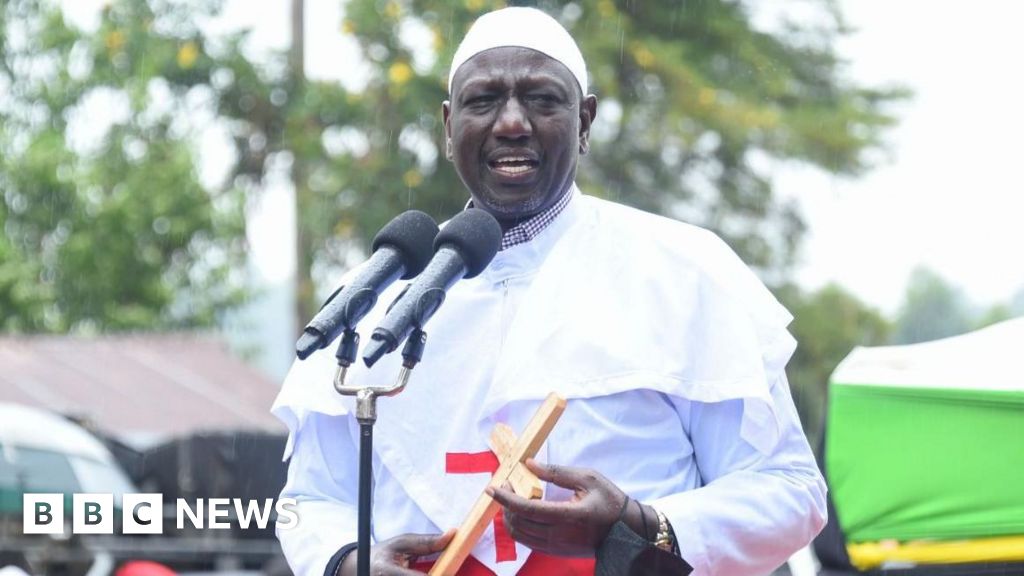Omar Marques | Lightrocket | Getty Images
This report is from today's CNBC Daily Open, our new, international markets newsletter. CNBC Daily Open brings investors up to speed on everything they need to know, no matter where they are. Like what you see? You can subscribe here.
What you need to know today
Dow breaks through 40,000 barrier
The Dow Jones Industrial Average briefly passed the 40,000 mark for the first time before ending lower. The Dow has been on a bull run since October 2022 thanks to a resilient economy. Having lost momentum in April, it rebounded on hopes of interest rate cuts and a strong earnings season. The S&P 500 and Nasdaq also hit record highs but ended the session in negative territory. The Dow has climbed nearly 6% in 2024, while the Nasdaq and S&P 500 are up 11% each. Treasury yields and oil prices also rose.
Attracting wealthy customers
Walmart, the biggest discount retailer, beat quarterly earnings and revenue expectations as more high-income customers sought bargains. In an interview with CNBC, Chief Financial Officer John David Rainey said, "We've got customers that are coming to us more frequently than they have before and newer customers that we haven't traditionally had, and they're coming into a Walmart whether it's a virtual store online, or whether it's one of our physical stores." Walmart shares reached a record high and closed 7% higher on Thursday.
Under-performing
Athletic apparel company Under Armour plans to cut jobs as part of a restructuring program after reporting fiscal fourth-quarter profit slumped 96%. The company said sales in its biggest market, North America, fell 10% and warned worse is to come. Under Armour's shares fell 1.3%.
Figma employees cash in
Figma will allow investors, past and present employees to sell shares in a tender offer that values the cloud-based design tool company at $12.5 billion. This valuation, up 25% from 2021, is still less than Adobe's failed $20 billion acquisition bid in 2022. The tender is supported by over 25 investors including a16z, Sequoia, and Kleiner Perkins.
Meme retreat continues
GameStop and AMC continued to retreat for a second day following a speculative rally after the reappearance of "Roaring Kitty" on social media at the beginning of the week. GameStop and AMC declined 30% and 15% on Thursday, respectively. But they are still up more than 60% each on the week.
[PRO] New S&P 500 targets
Wall Street's recent record highs have prompted market analysts to revise their S&P 500 year-end price targets. CNBC's Bob Pisani has gathered forecasts from leading strategists to offer insights into where the market may be headed.
The bottom line
JPMorgan Chase CEO Jamie Dimon this week warned policymakers the U.S. needs to address its growing fiscal deficit, a consequence of recent economic stimulus measures and tax cuts. Ignoring the 6% deficit could lead to more severe economic problems in the future, Dimon said.
Year to date, the government has spent $855 billion more than it has collected in taxes for this fiscal year, according to the U.S. Treasury Department. For fiscal 2023, the government's deficit spending came in at $1.7 trillion.
For some context, the U.S. spends a record $886 billion on defense. It's sending an additional $95 billion to Ukraine, Israel, Taiwan and the Indo-Pacific region. With past wars in Iraq and Afghanistan costing $2.3 trillion, generous tax cuts for businesses under the Trump administration, and President Joe Biden's Inflation Reduction Act offering billions in tax incentives for green energy and more, the national debt has ballooned to $34.53 trillion.
Granted, that's a scary number, but comparing it to the gross domestic product gives us a better understanding of Washington's ability to pay back the debt. At 123% of GDP, it's favorable compared to Japan ($9.2 trillion, or 263%), Greece, and Italy. And of course, it depends on whether investors are willing to lend money. There isn't a hint they wouldn't provide credit to the world's biggest economy, but things can change.
But all this spending, in part, as Dimon says, is pushing up inflation.
Wednesday's consumer price index showed inflation cooling somewhat in April. However, the consequences have been far-reaching for the real economy.
Walmart, the biggest retailer, has seen more wealthy customers shop at its stores. In an interview with CNBC, Walmart's Chief Financial Officer, John David Rainey, noted "wallets are still stretched," with shoppers prioritizing essentials like food and health.
This shift in consumer behavior underscores the impact of rising prices and the growing burden of debt. Credit card debt, in particular, has ballooned to a staggering $1.12 trillion, with delinquency rates on the rise. This trend is particularly concerning for younger adults already struggling with rent, student loans, and auto payments.
Dimon acknowledges government spending is good for the economy but he's also right it needs to be checked. Otherwise inflationary pressures will erode consumers' spending, saving and wages. And the government's ability to service debt.
— CNBC's Jeff Cox, Lisa Kailia Han, Tanaya Macheel, Sam Meredith, Hakyung Kim, Andrea Miller, Shawn Baldwin, Jessica Dickler, and Melissa Repko contributed to this report.

.png) 6 months ago
28
6 months ago
28









